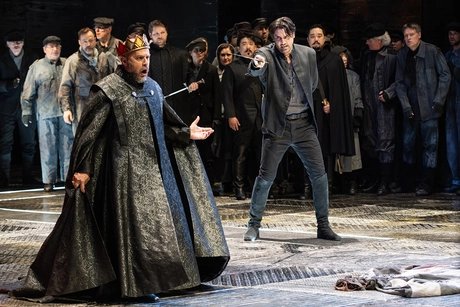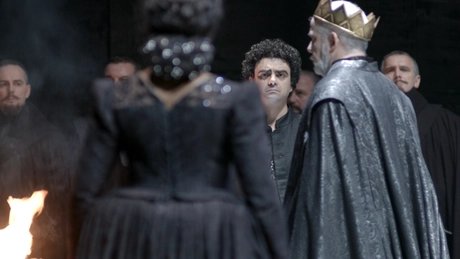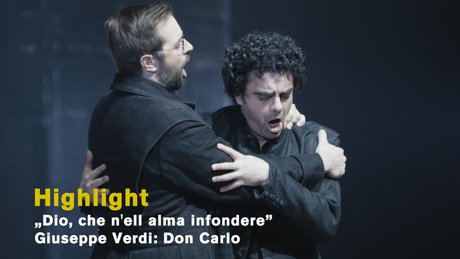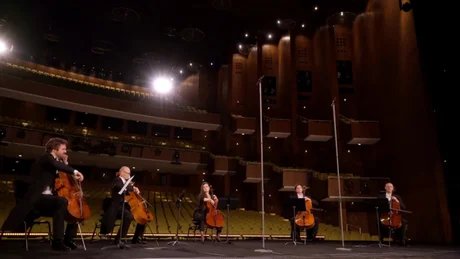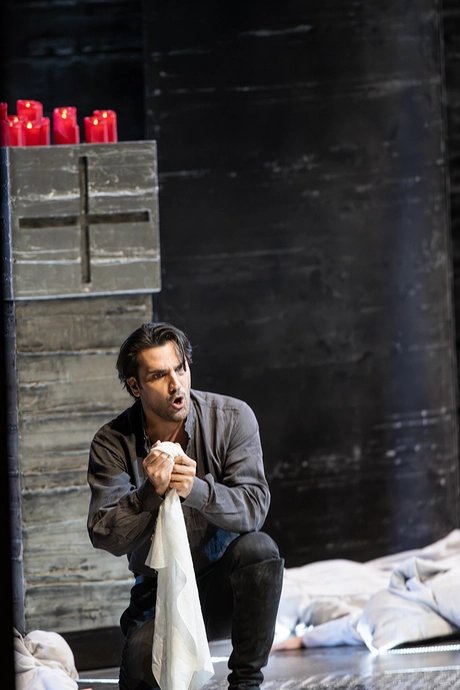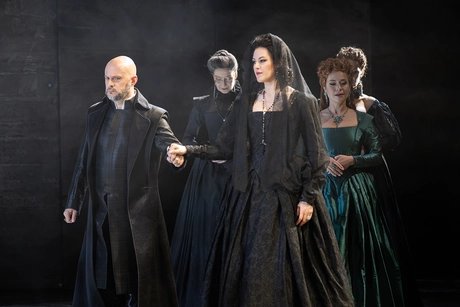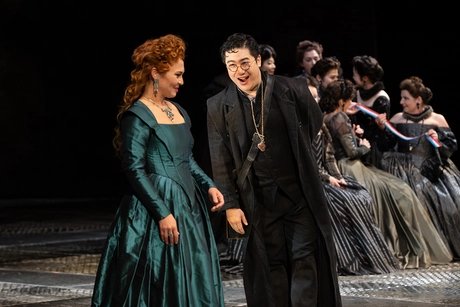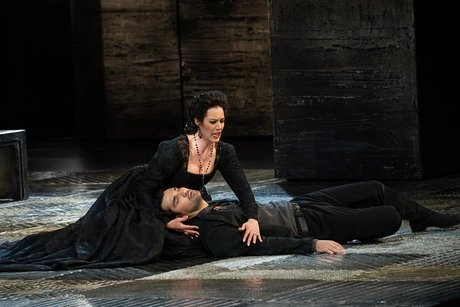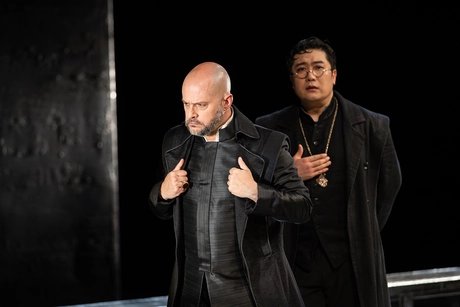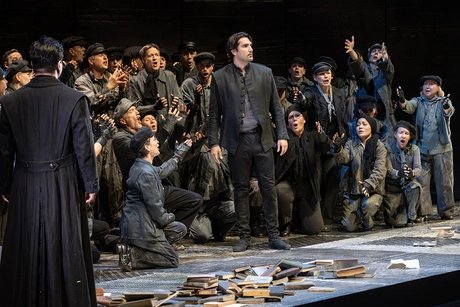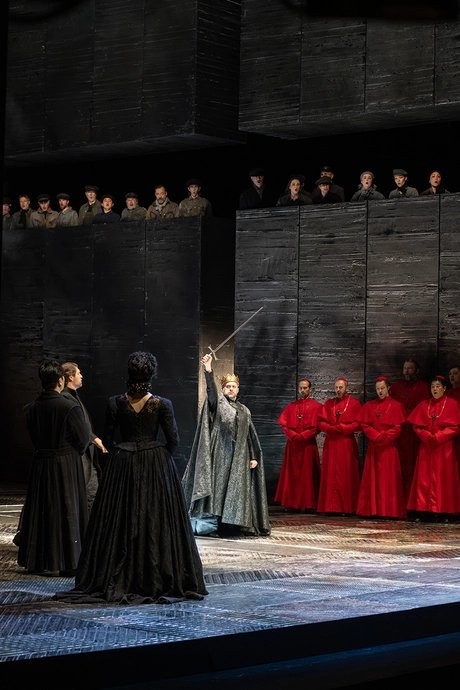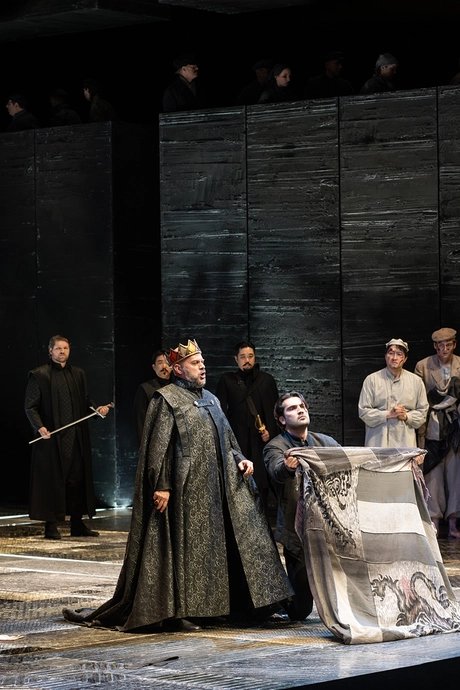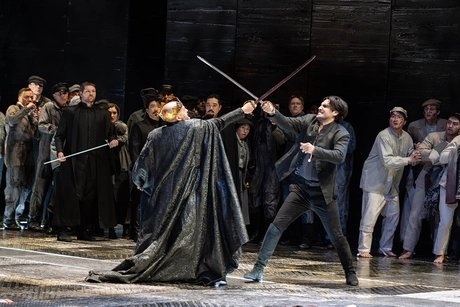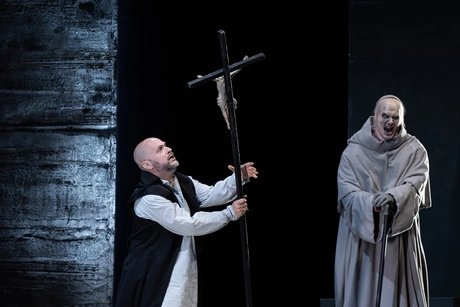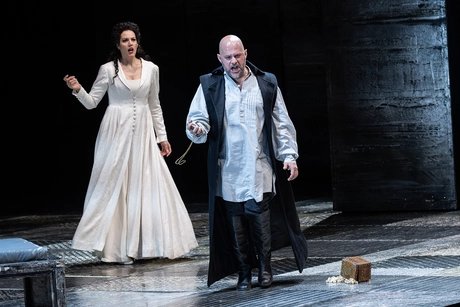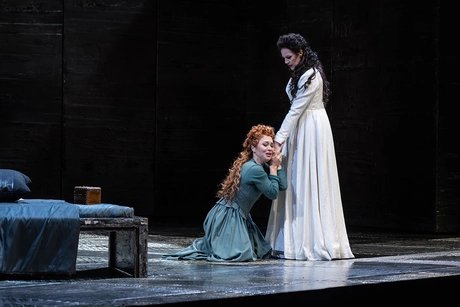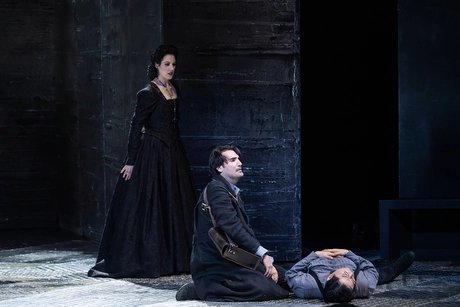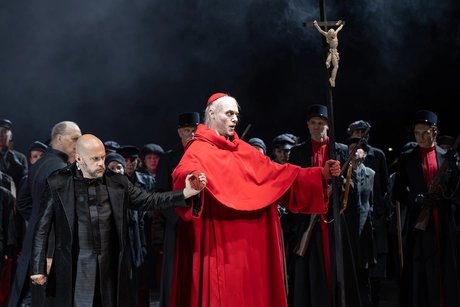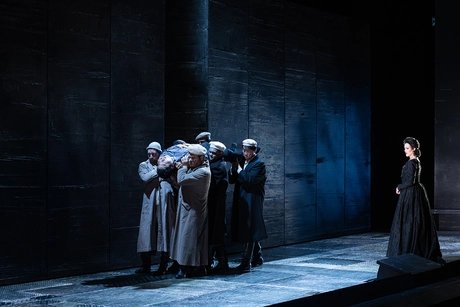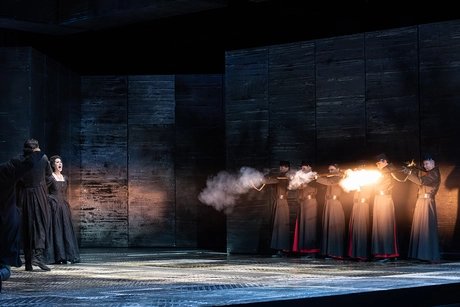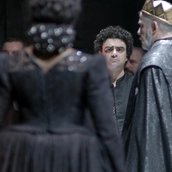
Don Carlo, one of Giuseppe Verdi's most impressive political operas, is the focus of this powerful production at the Deutsche Oper Berlin. Director Marco Arturo Marelli focuses on the characters' profound personal conflicts.
Their passions, their desires, and their disappointments – and intensifies these emotional dramas with a rigorously composed stage design, whose somber monumentality is reminiscent of the Spanish Escorial. Juraj Valčuha and Friedrich Praetorius conduct, bringing Verdi's dramatic score to life with musical precision.
Don Carlo – Verdi's Darkest Masterpiece
Verdi himself considered Don Carlo one of his most complex works – an opera he revised more often than any other. No wonder: the work, based on Friedrich Schiller's play, weaves political, religious, and social constraints into a dense web of hopelessness. The opera exists in no fewer than seven different versions, with the four-act version, which is the most frequently performed today, having premiered in Milan in 1884.
The central theme remains the incompatibility of individual freedom and absolutist power – in a world where even secular rulers like King Philip II are subject to the omnipresent control of the Church. Verdi relentlessly demonstrates that true liberation can only be found in death.
Director Marco Arturo Marelli – An opera production with powerful imagery
Marco Arturo Marelli presents Don Carlo as a gripping musical drama with great social depth. The opera becomes a parable about the struggle for freedom, identity, and independence. The Inquisition, a symbol of repressive clerical power, permeates every scene – a constant threat to anything that could unsettle the rigid power structure.
The imposing stage design, which draws visual references to Spanish court architecture, impressively underscores the characters' anxiety and confinement in this political power play.
Cast (selection):
- Liang Li / Roberto Tagliavini
- Valentyn Dytiuk
- Andrè Schuen / Davide Luciano
- Christina Nilsson / Maria Motolygina
- Karis Tucker
- and others
3 hours 30 minutes / One intermission
Sung in Italian with German and English subtitles
Additional information
Opera in four acts
Libretto by Joseph Méry and Camille du Locle, based on the tragedy by Friedrich Schiller
First performance of the Italian version by Achille de Lauzières on 10. January, 1884 in Milan
Premiered at the Deutsche Oper Berlin on 23 October 2011
Pre-performance lecture (in German): 45 minutes prior to each performance
Libretto by Joseph Méry and Camille du Locle, based on the tragedy by Friedrich Schiller
First performance of the Italian version by Achille de Lauzières on 10. January, 1884 in Milan
Premiered at the Deutsche Oper Berlin on 23 October 2011
Pre-performance lecture (in German): 45 minutes prior to each performance
Participating artists
Juraj Valčuha (Musikalische Leitung)
Marco Arturo Marelli (Inszenierung, Bühne, Licht)
Dagmar Niefind (Kostüme)
Jeremy Bines (Chöre)
Liang Li (Philipp II.)
Valentyn Dytiuk (Don Carlo)
Andrè Schuen (Rodrigo, Marquis von Posa)
Kangyoon Shine Lee (Graf von Lerma / Herold)
Patrick Guetti (Der Großinquisitor)
Volodymyr Morozov (Ein Mönch)
Christina Nilsson (Elisabeth von Valois)
Karis Tucker (Prinzessin Eboli)
Maria Vasilevskaya (Tebaldo)
Hye-Young Moon (Stimme von oben)
Volodymyr Morozov (1. Flandrischer Deputierter)
Benjamin Dickerson (2. Flandrischer Deputierter)
Philipp Jekal (3. Flandrischer Deputierter)
Paul Minhyung Roh (4. Flandrischer Deputierter)
Byung Gil Kim (5. Flandrischer Deputierter)
Joel Allison (6. Flandrischer Deputierter)
Chor der Deutschen Oper Berlin (Chöre)
Orchester der Deutschen Oper Berlin (Orchester)
